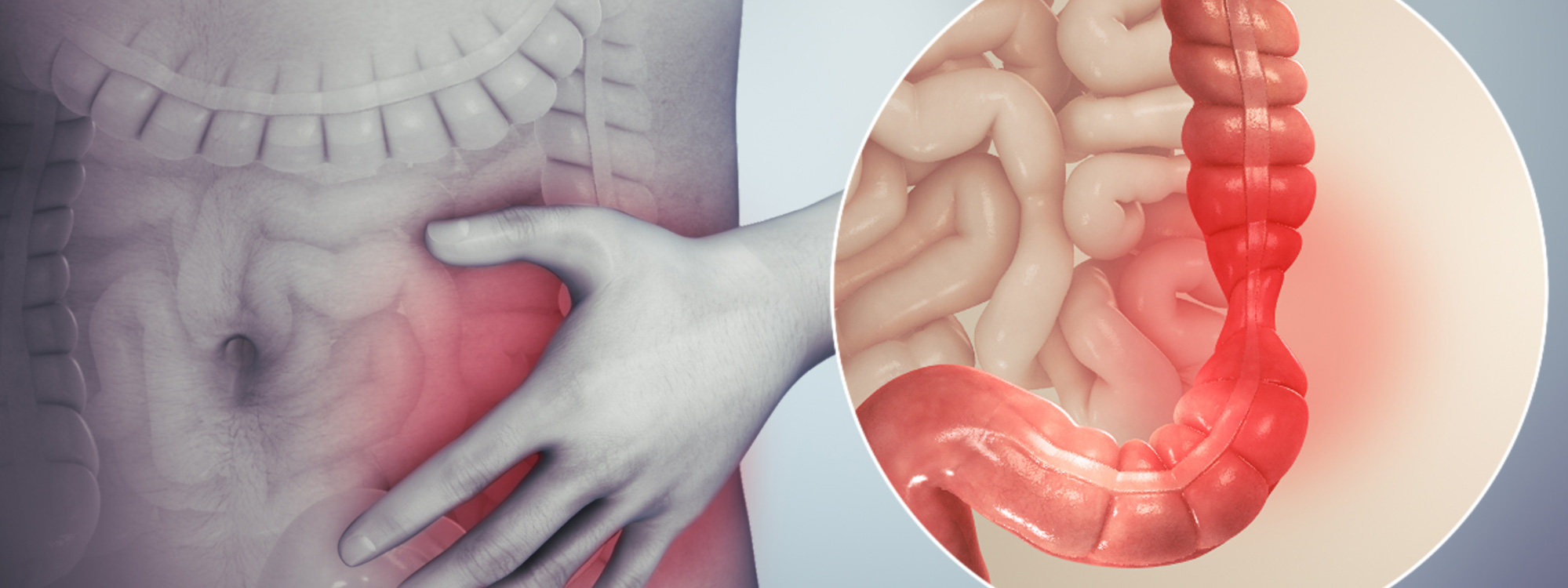IBS – Irritable Bowel Syndrome

Irritable Bowel Syndrome / IBS
Irritable Bowel Syndrome, commonly referred to as IBS is a common diagnosis. Doctors will use it as an umbrella-like diagnosis for issues like bloating, stomach pains, constipation, and/or diarrhea. The common solution is putting a person on medications. Many of my clients suffered with debilitating symptoms despite taking several medications. The daily pain of digestive issues can be very debilitating. With my help, many have reduced or even eliminated their medications and reversed their symptoms in as little as a few days to weeks! I can help my clients figure out the offending foods and using an elimination diet to discover which foods are causing them issues. Changing their diet and helping them create a satisfying and nutritionally complete meal plan is life changing.
Colitis and Crohn’s Disease
These conditions can be improved through diet. I have had clients no longer needing medications and reversing symptoms in as little as a week! The daily pain of digestive issues can be very debilitating. Traditional tests for food allergy and food sensitivity can lead a client to not only frustration but actually still having digestive symptoms. I can help my clients figure out the offending foods and using an elimination diet to discover which foods are causing them issues. Changing their diet and helping them create a satisfying and nutritionally complete meal plan is life changing.
Food Allergy / Food Sensitivities
Food Allergies and Food Sensitivity testing may not be reliable. The science does not support that just because a person shows a reaction in their blood, that they need to avoid that food. It is important to discover exactly what foods are causing symptoms so that you don’t need to follow an extremely restrictive diet when it is not necessary. I can help my client discover which foods they need to eliminate by having them follow and Elimination Protocol. Once you are symptom-free, I can help you follow a maintenance eating plan that is both nutritious and does not cause uncomfortable symptoms.
Unraveling the Enigma: Understanding Irritable Bowel Syndrome
Irritable Bowel Syndrome (IBS) is a common gastrointestinal disorder that affects millions worldwide. Despite its prevalence, IBS remains a complex and often misunderstood condition. This article delves into the intricacies of IBS, exploring its symptoms, potential causes, impact on daily life, and strategies for management.
The Puzzle of IBS
 IBS is characterized by a cluster of symptoms that affect the digestive system. These symptoms can vary widely from person to person, making diagnosis and treatment challenging. Common symptoms include abdominal pain, bloating, gas, diarrhea, and constipation. The unpredictable nature of IBS can significantly disrupt daily routines and quality of life.
IBS is characterized by a cluster of symptoms that affect the digestive system. These symptoms can vary widely from person to person, making diagnosis and treatment challenging. Common symptoms include abdominal pain, bloating, gas, diarrhea, and constipation. The unpredictable nature of IBS can significantly disrupt daily routines and quality of life.
Understanding the Symptoms
- Abdominal Pain and Discomfort: The hallmark symptom of IBS is abdominal pain or discomfort, often relieved by a bowel movement. This pain can range from mild to severe and is typically located in the lower abdomen.
- Altered Bowel Habits: IBS can cause changes in bowel habits, leading to either diarrhea or constipation. Some individuals experience alternating bouts of both.
- Bloating and Gas: Bloating and excessive gas are common in individuals with IBS. These symptoms can contribute to discomfort and impact self-esteem.
- Mucus in Stool: Mucus in the stool is another potential indicator of IBS, although its presence doesn’t necessarily indicate a serious problem.
Potential Causes and Triggers
The exact cause of IBS remains elusive, but several factors are thought to contribute:
- Gut-Brain Connection: The gut and the brain communicate closely, and disruptions in this interaction can trigger IBS symptoms, especially in response to stress or emotional triggers.
- Dysfunctional Gut Motility: Abnormal contractions of the muscles in the digestive tract can lead to altered bowel habits and pain.
- Intestinal Infections: Some cases of IBS are linked to a previous bacterial or viral infection that may have triggered ongoing gut issues.
Managing IBS
While there is no cure for IBS, there are several approaches to manage its symptoms:
- Diet Modifications: Certain foods can exacerbate IBS symptoms. An elimination diet under the guidance of a healthcare professional can help identify triggers.
- Lifestyle Changes: Managing stress through techniques like meditation, yoga, and relaxation can help reduce symptom severity.
- Medications: Depending on symptoms, medications may be prescribed to alleviate pain, normalize bowel movements, or manage bloating.
- Probiotics: Some individuals find relief from IBS symptoms through the use of specific probiotics.
Irritable Bowel Syndrome is a complex condition that impacts daily life in profound ways. While it lacks a one-size-fits-all solution, understanding its symptoms, triggers, and management strategies is vital for those affected. Seeking medical guidance, making lifestyle adjustments, and staying attuned to your body’s responses can empower individuals to navigate the enigma of IBS and achieve a better quality of life.
Easing the Tumultuous Journey
How a Custom Diet from a Dietitian Can Alleviate Irritable Bowel Syndrome
Introduction
Irritable Bowel Syndrome (IBS) presents a unique challenge for those who grapple with its unpredictable symptoms. While there is no one-size-fits-all solution, a custom diet crafted by a registered dietitian can be a powerful tool in managing IBS. This article delves into the ways in which a personalized diet can address the complexities of IBS, offering relief and improved quality of life.
The IBS Conundrum
 IBS is characterized by a range of symptoms that affect the gastrointestinal system, including abdominal pain, bloating, diarrhea, and constipation. The triggers and severity of these symptoms vary from person to person, making it a perplexing condition to diagnose and manage effectively.
IBS is characterized by a range of symptoms that affect the gastrointestinal system, including abdominal pain, bloating, diarrhea, and constipation. The triggers and severity of these symptoms vary from person to person, making it a perplexing condition to diagnose and manage effectively.
The Role of Diet in IBS Management
Diet plays a pivotal role in IBS management. Certain foods can exacerbate symptoms, while others may offer relief. However, identifying these trigger foods can be a daunting task. This is where a registered dietitian (RD) steps in, armed with expertise and experience to create a custom diet plan tailored to an individual’s unique needs.
Creating a Custom Diet for IBS
A custom diet for IBS begins with a thorough assessment by an RD:
- Identifying Trigger Foods: Through careful analysis, an RD pinpoints trigger foods that exacerbate IBS symptoms, whether they are high in fermentable carbohydrates (FODMAPs), artificial sweeteners, or other specific compounds.
- Tailored Nutritional Recommendations: An RD crafts a diet plan that provides essential nutrients while avoiding trigger foods. This plan emphasizes easily digestible foods, soluble fiber, and hydration to soothe the digestive tract.
- Balancing Fiber Intake: An RD helps strike a balance between soluble and insoluble fiber intake, as some IBS sufferers may find relief from constipation with increased soluble fiber.
- Individualized Meal Planning: The dietitian creates meals that align with individual preferences, ensuring the plan is both manageable and enjoyable.
Ongoing Support and Adaptations
An RD’s support doesn’t end with creating a custom diet plan. Regular follow-up sessions allow for progress assessment, monitoring symptom changes, and
necessary adaptations. This dynamic approach ensures that the diet remains effective and relevant as IBS symptoms evolve.
Empowering with Knowledge
Understanding the relationship between diet and IBS empowers individuals to make informed choices even beyond the confines of the diet plan. An RD provides education on portion control, mindful eating, and strategies for dining out without triggering symptoms.
Irritable Bowel Syndrome doesn’t have to hold you hostage. The power of a custom diet crafted by a registered dietitian can bring relief and restore a sense of control over your body. By collaborating with an RD, individuals can navigate the complexities of IBS, make informed dietary choices, and experience an improved quality of life—one meal at a time.
“Diets don’t work. You should never be hungry.”
Common Questions
Many of my clients find that they are able to eliminate foods for a period of time and then they are able to reintroduce these foods again.
Generally a Food Allergy will have cause a person to have severe, sometime life threatening symptoms after ingesting a particular food. These people will need to avoid those foods forever. However, with a Food Sensitivity, the reaction will not be as severe and may only happen with a large amount of the offending foods.
When working with my clients, any time we need to eliminate a food or food group, I will assess their entire diet to be sure that they are still getting all the vitamins, minerals, and nutrients they need for optimal health.
A diagnosis of IBS (Irritable Bowel Syndrome) is often diagnosed by doctors as an umbrella / general disorder that may include various digestive issues. A diagnosis of IBS can vary greatly between individuals.
Yes – I have helped many clients who suffer with digestive issues around their Crohn’s or Colitis diagnosis. Looking at specific foods and how they can impact symptoms can be extremely helpful in improving health.
